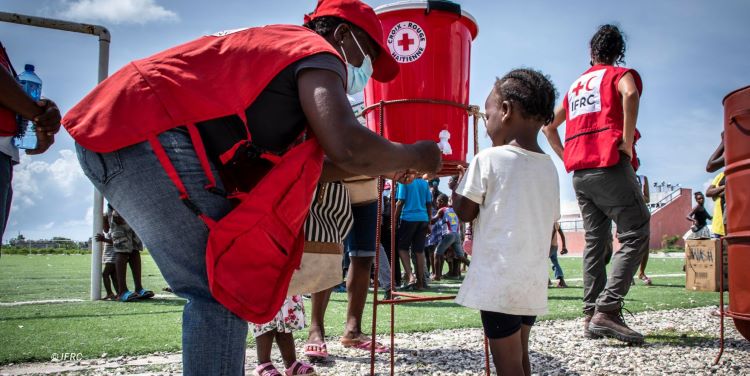The Diplomat
The Spanish Agency for International Development Cooperation (AECID) has mobilized more than €600,000 in urgent humanitarian aid for Haiti, a country where more than 3.9 million people are in a situation of extreme vulnerability due to cholera, citizen insecurity, and the food emergency.
According to information from the United Nations Office for the Coordination of Humanitarian Affairs (OCHA), the recurring cholera outbreaks are compounded by the insecurity generated by criminal gangs, which has led to the forced displacement of thousands of people, and an alarming situation of food insecurity.
Specifically, this last problem affects almost half of the population (5.7 million people), including two million people who are facing food emergency situations. Inflation and the effects of climate change further aggravate the situation.
Adding to all this is the persistent security crisis in the Port-au-Prince metropolitan area, which has severely affected the health system, drastically reducing access to emergency medical care. The closure of key hospitals, such as the Haiti State University Hospital, due to insecurity has left the population in a situation of extreme vulnerability.
To mitigate this situation, AECID has implemented two urgent lines of action: first, AECID has joined the World Food Programme (WFP) initiative and the logistics cluster to send essential supplies to Haiti through the United Nations Humanitarian Response Depot (UNHRD) in Panama.
This air shipment, valued at USD 150,000 (just over €128,000), consists of tool kits, family tents, mosquito nets, and water purification and latrine construction equipment. Weighing approximately 13,000 kilograms and measuring 58 cubic meters, it was scheduled to arrive in Port-au-Prince this Wednesday.
In addition, AECID has made a contribution of €500,000 to the International Federation of Red Cross and Red Crescent Societies (IFRC) to support its Country Plan, designed in collaboration with the Haitian Red Cross and other National Societies. The plan’s priorities include climate change adaptation measures, crisis and disaster preparedness, response actions, health and well-being promotion, and care for the displaced and migrant population.
Furthermore, AECID, in collaboration with partners in the country, such as the Pan American Health Organization (PAHO), is supporting the operation of La Paix University Hospital. This center has become the only public facility in the Port-au-Prince Metropolitan Area capable of managing a large number of injured patients and ensuring the continuity of emergency medical care, given the closure of other hospitals due to insecurity.
